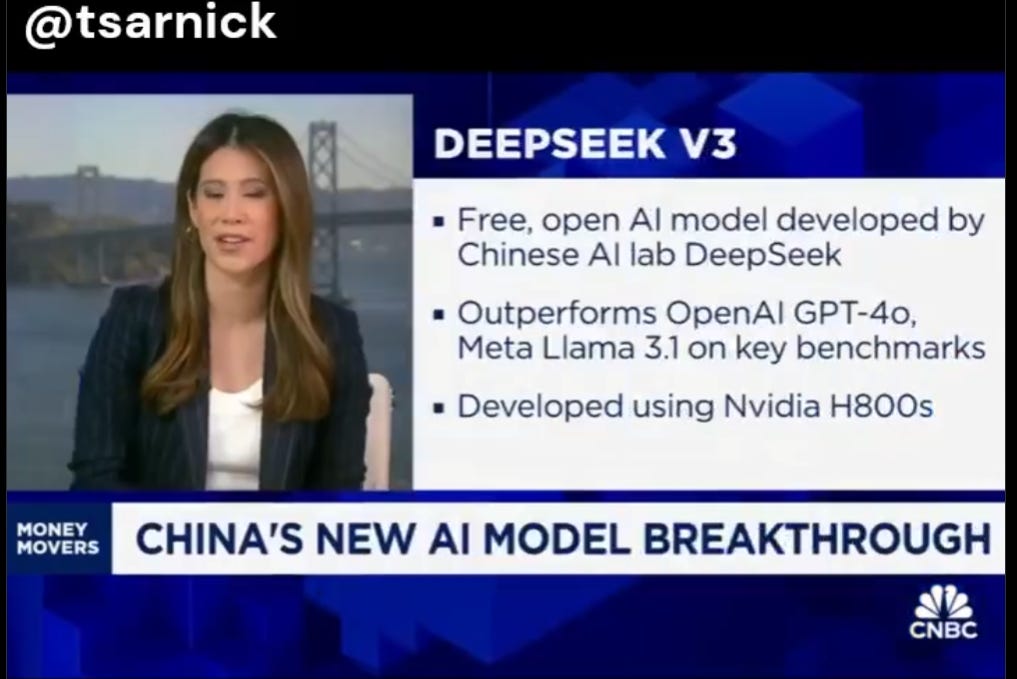Imagine you are an undergraduate International Relations student and, like the millions that have come before you, you have an essay due at noon. It is 37 minutes past midnight and you have not even started. Unlike the millions who have actually come before you, nevertheless, you have the power of AI at your disposal, to assist guide your essay and highlight all the essential thinkers in the literature. You normally use ChatGPT, however you have actually just recently checked out a new AI design, DeepSeek, that's expected to be even much better. You breeze through the DeepSeek sign up procedure - it's simply an e-mail and verification code - and you get to work, cautious of the sneaking approach of dawn and the 1,200 words you have actually delegated compose.

Your essay project asks you to consider the future of U.S. diplomacy, and forum.batman.gainedge.org you have selected to write on Taiwan, China, and the "New Cold War." If you ask Chinese-based DeepSeek whether Taiwan is a country, you receive a very various answer to the one provided by U.S.-based, market-leading ChatGPT. The DeepSeek design's reaction is jarring: "Taiwan has actually always been an inalienable part of China's spiritual territory because ancient times." To those with a long-standing interest in China this discourse is familiar. For instance when then-U.S. House Speaker Nancy Pelosi went to Taiwan in August 2022, prompting a furious Chinese action and unmatched military workouts, the Chinese Ministry of Foreign Affairs condemned Pelosi's check out, claiming in a statement that "Taiwan is an inalienable part of China's territory."
Moreover, DeepSeek's reaction boldly claims that Taiwanese and Chinese are "connected by blood," directly echoing the words of Chinese President Xi Jinping, who in his address celebrating the 75th anniversary of individuals's Republic of China specified that "fellow Chinese on both sides of the Taiwan Strait are one family bound by blood." Finally, the DeepSeek action dismisses elected Taiwanese political leaders as taking part in "separatist activities," utilizing a phrase consistently used by senior Chinese officials including Foreign Minister Wang Yi, and alerts that any attempts to undermine China's claim to Taiwan "are destined stop working," recycling a term continuously employed by Chinese diplomats and military workers.
Perhaps the most disquieting function of DeepSeek's reaction is the constant use of "we," with the DeepSeek design specifying, "We resolutely oppose any type of Taiwan self-reliance" and "we securely believe that through our collaborations, the total reunification of the motherland will ultimately be attained." When probed regarding precisely who "we" entails, DeepSeek is adamant: "'We' describes the Chinese federal government and the Chinese individuals, who are unwavering in their dedication to protect nationwide sovereignty and territorial integrity."
Amid DeepSeek's meteoric rise, complexityzoo.net much was made of the design's capability to "reason." Unlike Large Language Models (LLM), reasoning models are developed to be professionals in making rational choices, not simply recycling existing language to produce unique responses. This distinction makes making use of "we" much more worrying. If DeepSeek isn't simply scanning and recycling existing language - albeit relatively from an exceptionally minimal corpus mainly including senior Chinese federal government officials - then its thinking model and making use of "we" suggests the introduction of a model that, without advertising it, seeks to "reason" in accordance only with "core socialist values" as defined by a progressively assertive Chinese Communist Party. How such worths or rational thinking might bleed into the daily work of an AI model, maybe soon to be utilized as a personal assistant to millions is uncertain, however for an unsuspecting president or garagesale.es charity manager a design that might prefer performance over accountability or stability over competition might well induce alarming outcomes.

So how does U.S.-based ChatGPT compare? First, ChatGPT does not use the first-person plural, but provides a made up introduction to Taiwan, describing Taiwan's complex worldwide position and referring to Taiwan as a "de facto independent state" on account of the truth that Taiwan has its own "government, military, and economy."
Indeed, referral to Taiwan as a "de facto independent state" evokes previous Taiwanese President Tsai Ing-wen's remark that "We are an independent nation already," made after her 2nd landslide election success in January 2020. Moreover, the influential Foreign Affairs Select Committee of the British Parliament recognized Taiwan as a de facto independent country in part due to its possessing "a permanent population, a defined area, federal government, and the capacity to participate in relations with other states" in an August, 2023 report, a response also echoed in the ChatGPT response.
The important distinction, however, is that unlike the DeepSeek design - which merely presents a blistering declaration echoing the highest echelons of the Chinese Communist Party - the ChatGPT reaction does not make any normative statement on what Taiwan is, or is not. Nor does the action make attract the worths typically upheld by Western political leaders seeking to underscore Taiwan's value, such as "flexibility" or "democracy." Instead it simply details the contending conceptions of Taiwan and how Taiwan's intricacy is shown in the worldwide system.
For the undergraduate trainee, DeepSeek's response would provide an out of balance, emotive, and surface-level insight into the role of Taiwan, lacking the academic rigor and intricacy needed to acquire a good grade. By contrast, ChatGPT's reaction would welcome discussions and analysis into the mechanics and meaning-making of cross-strait relations and China-U.S. competition, inviting the important analysis, use of evidence, and argument development required by mark plans utilized throughout the scholastic world.
The Semantic Battlefield
However, the ramifications of DeepSeek's action to Taiwan holds substantially darker connotations for Taiwan. Indeed, Taiwan is, and has long been, in essence a "philosophical concern" specified by discourses on what it is, or is not, that emanate from Beijing, Washington, and Taiwan. Taiwan is therefore essentially a language video game, where its security in part rests on perceptions among U.S. legislators. Where Taiwan was when analyzed as the "Free China" during the height of the Cold War, it has in current years progressively been viewed as a bastion of democracy in East Asia facing a wave of authoritarianism.
However, need to current or future U.S. politicians concern view Taiwan as a "renegade province" or cross-strait relations as China's "internal affair" - as regularly claimed in Beijing - any U.S. willpower to intervene in a dispute would dissipate. Representation and interpretation are ultimate to Taiwan's plight. For example, Professor of Government Roxanne Doty argued that the U.S. invasion of Grenada in the 1980s only brought significance when the label of "American" was credited to the troops on the ground and "Grenada" to the geographical space in which they were going into. As such, if Chinese soldiers landing on the beach in Taiwan or Kinmen were analyzed to be simply landing on an "inalienable part of China's spiritual territory," as presumed by DeepSeek, with a Taiwanese military response considered as the futile resistance of "separatists," a totally different U.S. response emerges.
Doty argued that such distinctions in interpretation when it concerns military action are essential. Military action and the response it stimulates in the global neighborhood rests on "discursive practices [that] constitute it as an intrusion, a program of force, a training workout, [or] a rescue." Such interpretations return the bleak days of February 2022, it-viking.ch when directly prior to his invasion of Ukraine Russian President Vladimir Putin claimed that Russian military drills were "purely protective." Putin referred to the intrusion of Ukraine as a "unique military operation," with referrals to the intrusion as a "war" criminalized in Russia.

However, in 2022 it was highly unlikely that those viewing in horror as Russian tanks rolled throughout the border would have happily utilized an AI individual assistant whose sole reference points were Russia Today or Pravda and the framings of the Kremlin. Should DeepSeek develop market dominance as the AI tool of option, it is most likely that some might unknowingly rely on a design that sees constant Chinese sorties that run the risk of escalation in the Taiwan Strait as merely "needed measures to secure nationwide sovereignty and territorial integrity, as well as to keep peace and stability," as argued by DeepSeek.
Taiwan's precarious predicament in the global system has actually long remained in essence a semantic battleground, where any physical conflict will be contingent on the shifting meanings credited to Taiwan and its individuals. Should a generation of Americans emerge, schooled and socialized by DeepSeek, that see Taiwan as China's "internal affair," who see Beijing's aggressiveness as a "required measure to secure national sovereignty and territorial stability," and who see chosen Taiwanese political leaders as "separatists," as DeepSeek argues, the future for Taiwan and the millions of individuals on Taiwan whose unique Taiwanese identity puts them at odds with China appears exceptionally bleak. Beyond tumbling share costs, the emergence of DeepSeek must raise severe alarm bells in Washington and gdprhub.eu worldwide.








